Newcomers widen the global range
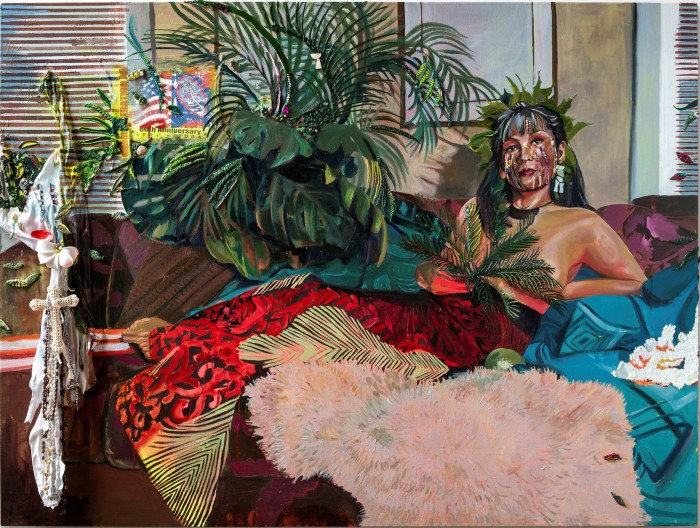
Roula Khalaf, Editor of the FT, selects her favourite stories in this weekly newsletter.
Art Basel’s first curator-led edition of its online viewing rooms, OVR: Portals, features an eclectic mix of artists and galleries, from art world heavyweights to fresh talent, responding to ideas about how we are living and interacting in a time when social and political behaviour is constantly shifting.
These four newcomer artists are presented in solo shows in the digital exhibition that interrogate human connection and tell stories of communities – united and fragmented – within the context of the parameters that have shaped our societies over the past year, from the pandemic to political upheavals.
Troy Makaza: ‘Big Man Syndrome’ (First Floor Gallery Harare)
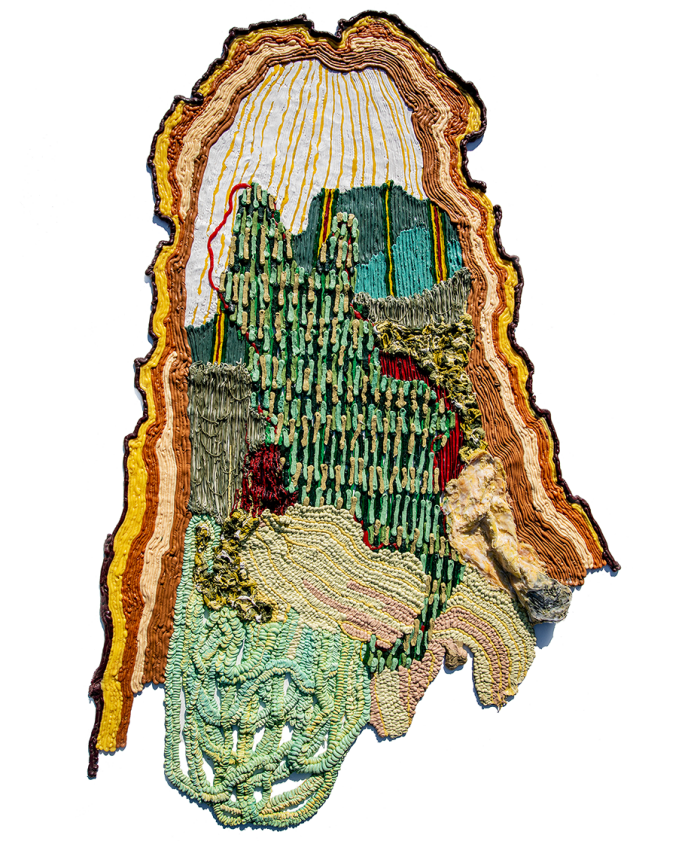
First Floor Gallery Harare presents Big Man Syndrome, a solo show by Troy Makaza in which he reacts to social inequalities and hyper-individualism exacerbated by lockdowns during the pandemic in his native Zimbabwe.
Makaza connects these ideas to the legacy of colonialism in Zimbabwe today, where the intersection of wealth, capitalism and patriarchy create a culture of male exploitative privilege and veneration of extravagant yet immoral men in a country afflicted with extreme income inequality.

His woven silicone wall hangings are infused with bright pigments, painted, cast and shaped as visual manifestations of the toxic masculinity prevalent in his country’s social and gender politics.
The abstract and playful works use colours and forms to probe the issues, riffing on symbols of power – the outline of a judge’s wig, military regalia – and soaking them in the hues of US dollar notes. As a young artist, Makaza confronts dated traditions of Zimbabwe’s political classes, reflecting generational tensions.
Faiza Butt: ‘After All This Is Won’ (Vadehra Art Gallery)
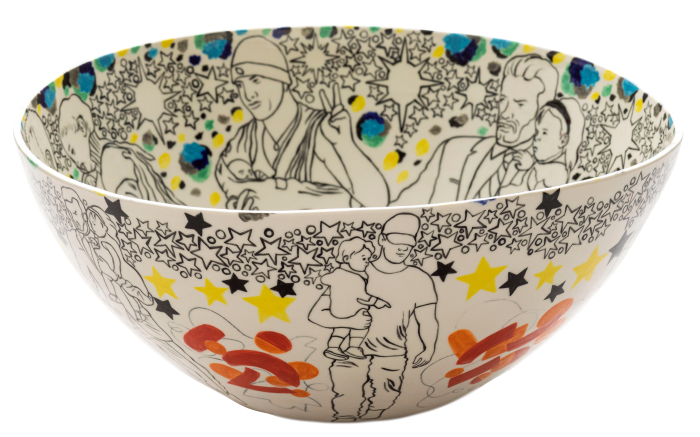
Can we bring back the hug in a time of forbidden embraces? London-based Pakistani artist Faiza Butt reflects on the loss of human touch since the outbreak of Covid-19 in After All This Is Won, presented by New Delhi’s Vadehra Art Gallery. Through ceramics, ink drawings and works on polyester film, Butt contends with the aspect of human connection ruptured most by the pandemic and our sensory shift towards a contact-less world.
“Touching is an intuitive expression that was already under threat in this technology-driven world, and now it’s suddenly taboo,” says Roshini Vadehra, the gallery’s director. “These works research the fragility of the human condition and our search for warmth and embrace in relationships.”
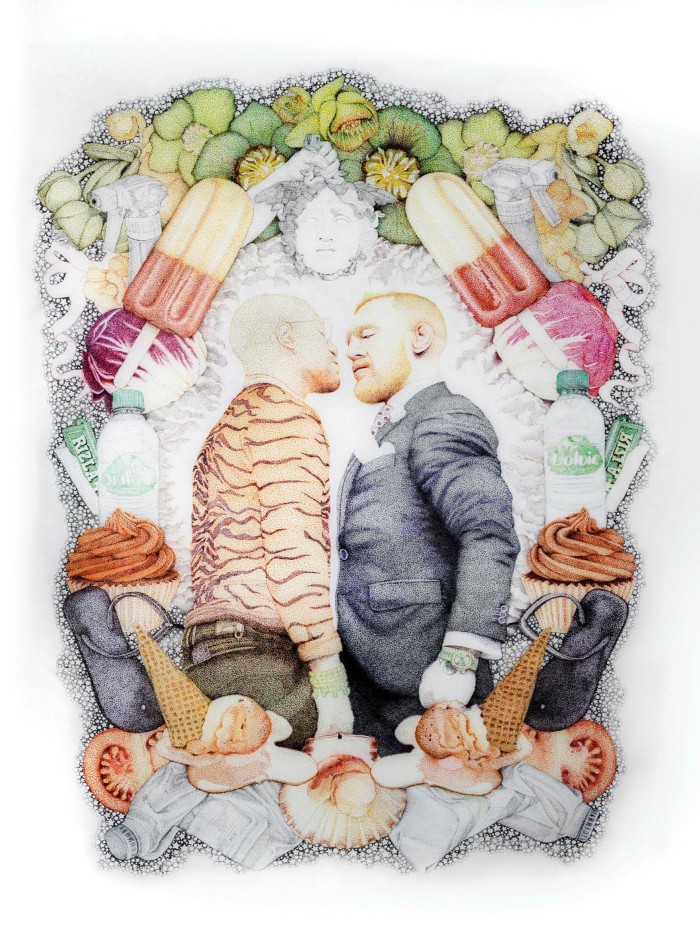
In “The Epoch” (2018), two pointillist figures almost kiss, their bodies leaning in, teasing to touch. Framing them is a detailed border of culinary and cultural detritus: popsicles, fruit, bottles of sanitiser.
“It’s ironic we are asking viewers to reflect on the loss of touch through a digital exhibition,” Vadehra admits. “Perhaps it will persuade audiences to reflect on the need to bring back this essential human experience.”
Gisela McDaniel: ‘Sangan Amot’ (Pilar Corrias)
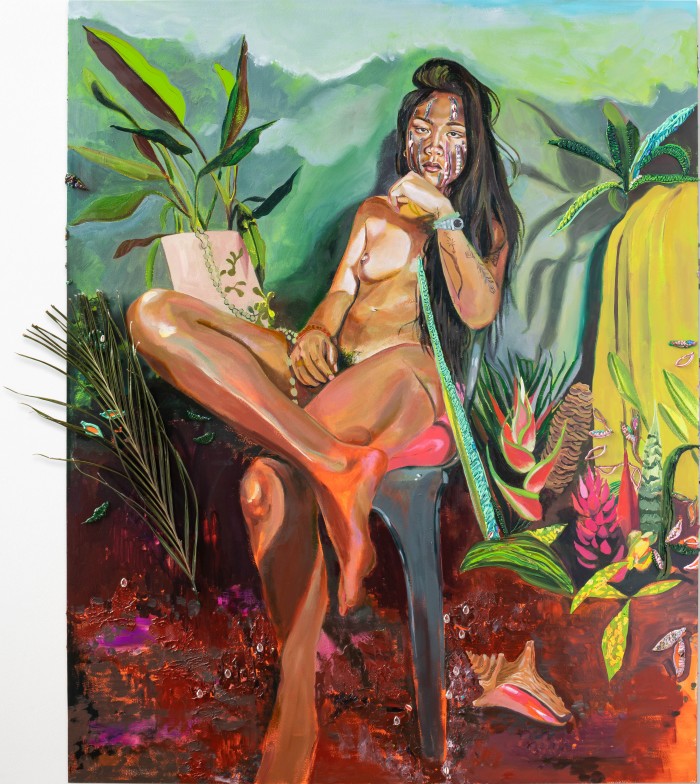
Women and non-binary people of colour from marginalised communities are the subjects of Gisela McDaniel’s vibrant oil paintings. Titled “Sangan Amot”, the stirring portraits are paired with layers of audio woven from her conversations with the sitters who have experienced violence – sexual, institutional, colonial or because of their intersectional identities.
Detroit-based McDaniel draws on her own experience of sexual violence and her indigenous background – she is Chamorro; her mother from Guam, a US territory – and its colonial legacy to amplify the voices of her sitters. “The things they shared with me feel very precious because we talked about the ways people survive. The conversations are a way of healing. When you speak about something out loud it’s no longer just your responsibility,” she says.
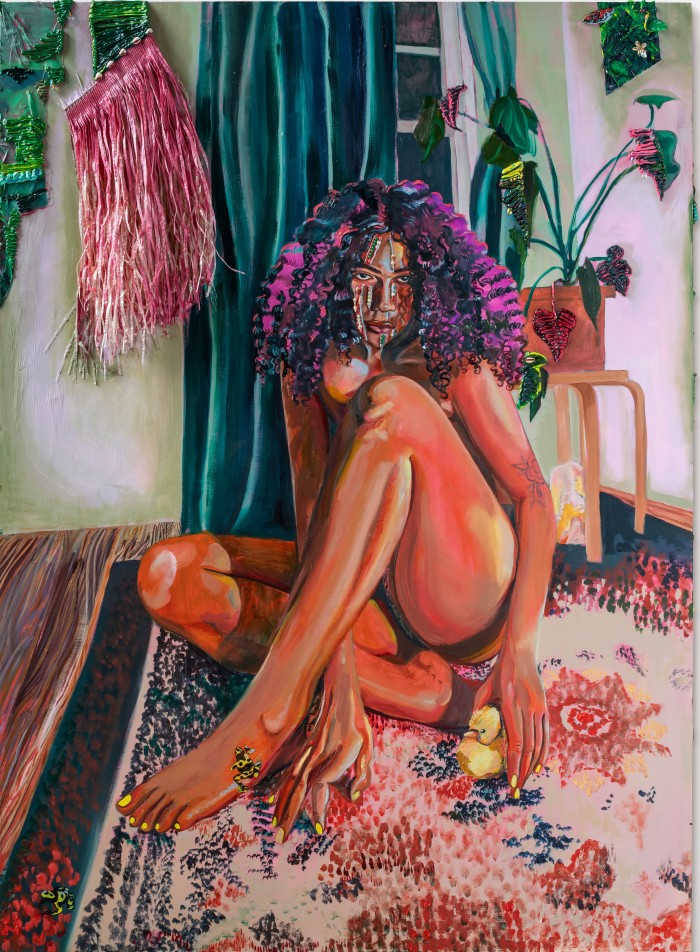
McDaniel portrays her defiant sitters in scintillating detail, taking care to “make sure they aren’t vulnerable”. They are represented in painterly and sculptural form through physical objects that adorn the works – the sitters’ own belongings and artefacts – their stories jutting out from the canvases. “I’m excited about those moments where somebody leaves the viewing room and something echoes inside their head,” adds McDaniel. “I’m planting seeds of empathy and understanding.”
“Gisela brings these voices that are normally silent or don’t get a chance to be heard straight into the centre of a cultural discourse,” adds Pilar Corrias, whose London gallery is representing the works.
I-Lann Yee: ‘Borneo Heart’ (Silverlens)
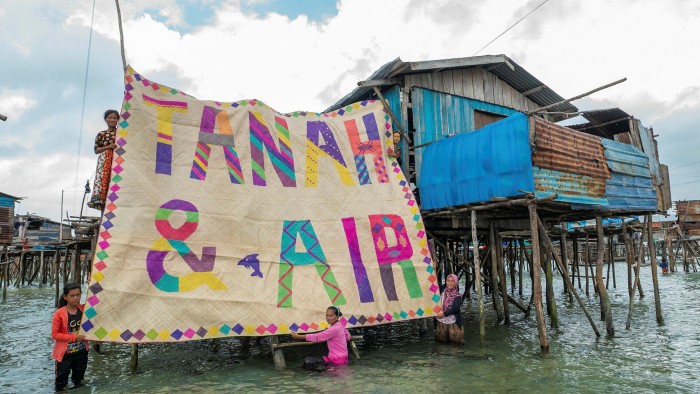
Ideas about how we use and share space, exchange ideas and build communities all rest on the tikar – the woven mat used commonly in Southeast Asia – in Malaysian artist I-Lann Yee’s collaborative exhibition Borneo Heart, presented by Silverlens.
Infused with a strong focus on communal interactions and social gathering, I-Lann’s works represent a “space where things get activated”. The mat is a symbol of socialisation and equality – everyone is invited and sits on the same level to sleep, work, eat, celebrate.
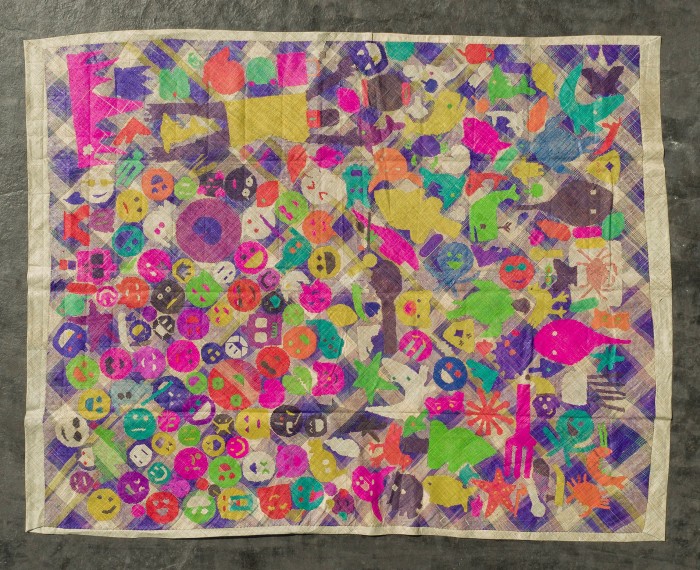
I-Lann roots her practice in the geographic mat-weaving traditions of communities in Sabah, Borneo and Semporna, working with weavers from small communities. Cultures collide in “Tikar Emoji” (2020), a traditional “tepo” mat dotted with the familiar expressive faces of emoji symbols in bright hues, made by the Bajau Sama DiLaut community. Through I-Lann’s collaborative project, the women weavers created a business through their cultural production, selling mats of their own designs and reviving their heritage tepo weaving.
June 17-19, artbasel.com

Comments